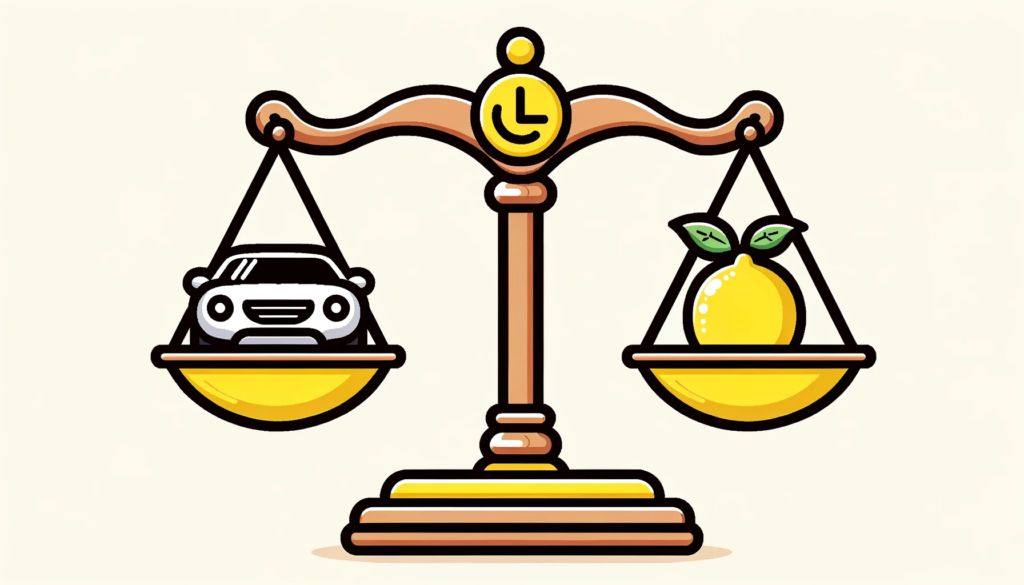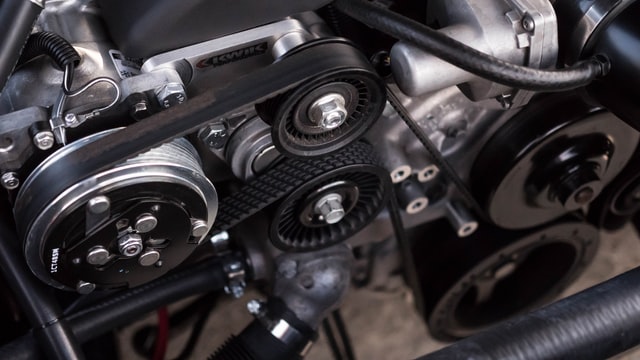How Much Money Can You Get From Lemon Law In California?

Do you happen to possess a vehicle in California that exhibits consistent issues, whether you leased or bought it? If that’s the case, you’re certainly not the only one. A “Lemon” is typically described as a car plagued by persistent issues that detrimentally affect its safety, worth, or overall functionality.
The concept of an “average” lemon law settlement is non-existent. Generally, settlements within California’s lemon law framework can significantly differ, contingent on factors such as the car’s make, model, age, purchase price, and mileage. Additionally, the settlement amount tends to increase with newer vehicles and higher initial costs. However, it’s essential to note that this is a broad guideline and shouldn’t be taken as an absolute rule. Individual cases can vary widely based on unique circumstances.
Customers who enlist the expertise of a seasoned lemon law attorney often experience more favorable outcomes when aiming for the highest possible lemon law settlements. An adept lemon law attorney comprehends the intricacies of preparing essential documentation, liaising with the manufacturer, and building a compelling case. A proficient attorney specializing in lemon law will not shy away from confronting automobile manufacturers, ensuring their clients receive the most advantageous compensation possible.
In brief, there’s no standard California lemon law settlement because it varies based on several factors. However, it’s possible to estimate your potential settlement based on specific criteria. For an estimate, we’ve calculated averages considering different factors below.
How to Obtain a Settlement Offer
To secure a lemon law settlement offer in California, it’s crucial to follow the right steps in building your case. Before filing a legal lemon law claim, you must gather all necessary documentation demonstrating that you’ve made a “reasonable number of attempts” to have the car repaired. This entails keeping records of work orders and repair invoices from your visits to the mechanic or the dealership’s service department.
Although the law doesn’t specify the exact number of repair attempts considered “reasonable,” a knowledgeable lemon law expert can help you determine this. If you have questions about whether your car qualifies as a lemon, don’t hesitate to contact Alpha Law Firm for assistance.

What is a Lemon?
A “lemon” refers to a car, truck, SUV, or any vehicle that fails to meet performance expectations. Even after multiple repair attempts at the dealer, the vehicle continues to malfunction due to electrical or mechanical issues. To determine if you have a Lemon Law claim, check if your vehicle is still covered by the original manufacturer’s warranty. If it is, there’s a strong likelihood of having a lemon law case. In the case of a used car, you must have one of three warranties to be eligible to file a Lemon Law claim.
The typical cost of a new vehicle in the United States stands at $49,000.
For low settlements, calculations were based on 10% of the average new car price.
Moderate settlements were determined by considering a 10,000-mile usage deduction. The final amount was adjusted after deducting the remaining loan balance.
Several factors typically impact the amount of a lemon law settlement, such as:
- Make and Model: The specific brand and model of the vehicle in question.
- Age: The age of the vehicle at the time the lemon law claim is filed.
- Purchase Price: The initial price paid for the vehicle.
- Mileage: The number of miles driven on the vehicle.
- Nature and Frequency of Repairs: The type of problems and how often they occurred, despite repair attempts.
To pursue a successful Lemon Law claim, you must ensure your vehicle falls under one of these three warranties:
- Lemon Law Buyback Warranty: This warranty applies if your vehicle has been repurchased by the manufacturer due to previous issues.
- Manufacturer’s Original New-Car Warranty: If your vehicle is still covered by the original warranty provided by the manufacturer when you bought it new, you are eligible.
- Certified Pre-Owned Warranty from Your Dealership: If you bought a certified pre-owned vehicle and it came with a warranty from the dealership, you may qualify under this warranty.
It’s essential to meticulously prepare for the Lemon Law claims process, which follows specific procedures. The initial step involves sending a demand letter to the manufacturer. Our California lemon law attorneys can handle this on your behalf. Despite anticipated opposition, our lawyers remain steadfast and negotiate aggressively to secure your rights.

Lemon Law Compensation: Understanding the Outcome of a Successful Claim
Filing a claim under the California lemon law can lead to diverse outcomes. Reviewing the California Department of Consumer Affairs’ list of typical lemon law settlements can offer insights. However, it’s crucial to remember that every case is distinct. While there are general settlement patterns, there’s no guarantee that your settlement will match what someone else received for the same vehicle. The resolution often depends on what the consumer is willing to agree upon, which can sometimes expedite the process.
The potential settlement options under the California lemon law include:
- Replacement Vehicle: Receiving a new vehicle in place of the defective one.
- Refund Equivalent to the Purchase Price: Getting a refund for the full purchase price of the vehicle.
- Additional Repair Attempt: Allowing the manufacturer one more attempt to repair the vehicle.
- “Cash and Keep”: Getting a cash settlement while keeping the defective vehicle.
- Mileage Offset: Receiving compensation based on the mileage driven before the issues arose.
- Extended Service Contract: Receiving an extended warranty or service contract for the vehicle.
- Reimbursement for Incidental Expenses: Getting reimbursed for expenses related to the defective vehicle, such as rental car costs.
- No Settlement (“Nothing”): Not receiving any specific compensation or resolution.
The actual settlement depends on the specific circumstances of the case and negotiations between the consumer and the manufacturer.
1. Receiving A Replacement Vehicle
Opting for a replacement vehicle from the manufacturer is one possible resolution, although it’s relatively rare. This choice becomes more complex when dealing with a new lemon vehicle, as new model years are likely to be released before legal action concludes. Typically, consumers prefer a replacement with a newer model year than their lemon. For instance, a lemon from 2021 might be replaced with a 2023 model, with the hope that any issues with the newer model have been rectified during that time frame.
2. Reimbursement of the Purchase Price
Receiving a refund and parting ways with the problematic vehicle is often the best and most common outcome in many lemon law cases. For someone who bought a Dodge and faced persistent issues, getting a refund allows them to move on and purchase a different car. In such cases, the faulty vehicle is returned to the manufacturer or dealership.
It’s worth noting that the refund amount might be less than the original purchase price due to various factors. For instance, if the car shows visible damage, like being in an accident or experiencing issues due to neglect, the refund could be adjusted accordingly. If you need more details on how the refund is calculated, you can find additional information by prequalifying below.
3. Extra Repair Attempt
Identifying a lemon vehicle usually involves it experiencing the same issue despite multiple repair attempts. To strengthen your case, the dealership must be given a reasonable number of attempts, often defined as two or more, to fix the problem. Thoroughly documented repair attempts made under warranty serve as strong evidence for your case. Having detailed records can significantly bolster your position when pursuing a lemon law claim.

4. The “Cash and Keep” Option
In certain cases, you might receive a “cash and keep” offer, where you’re compensated for your inconvenience but still retain ownership of the vehicle. If you can tolerate the issues with the lemon or have confidence they can be permanently resolved, this option could be a suitable choice. It allows you to address the problem on your own terms while being compensated for the troubles you’ve faced.
Deciding to accept the cash-and-keep option can indeed be a tough choice, especially if the unresolved defect poses a safety risk. Consulting with your attorney is highly advisable in such situations. They can provide valuable guidance on whether this option is the best possible outcome and discuss alternative solutions that prioritize your safety and legal rights. It’s essential to make an informed decision that safeguards both your well-being and your rights as a consumer.
Evaluating whether a cash-and-keep settlement is suitable for you can be challenging without understanding the alternative option of lemon law buybacks. Typically, if you prevail in a lemon law case, you receive either a cash-and-keep settlement or a lemon law repurchase.
Lemon law buybacks are more common than cash-and-keep settlements. In a cash-and-keep settlement, you keep the vehicle, and the manufacturer compensates you. This differs from a consumer lemon law “buyback,” where you return the car, and the supplier repurchases it from you. Understanding these distinctions is crucial in making an informed decision about the best resolution for your situation.
When dealing with a leased car, the consumer typically returns it once the lease expires. Here are important points to consider:
- Cash-and-Keep Agreement: In this arrangement, the manufacturer acknowledges the vehicle as a lemon or agrees to compensate the customer. The consumer retains custody of the car, whether through ownership or an ongoing lease, until the lease contract concludes.
- Compensation for Troubles: The manufacturer compensates the customer for the pain, suffering, or inconvenience endured due to the faulty car. Even if the manufacturer doesn’t consider the car a complete lemon, they may choose to compensate the customer for the troubles faced. This compensation acknowledges the challenges experienced by the consumer and serves as reparation for the inconvenience caused by the defective vehicle.
- 5. Mileage Offset
If your car qualifies as a “lemon” and you receive a replacement or refund, the manufacturer has the right to deduct a prorated amount from the total reimbursement for the time you drove the car without encountering any issues. This deduction, known as a mileage offset, is calculated by dividing 120,000 (the average life expectancy of a car as determined by statute) by the mileage at the initial warranty repair attempt for the problem that caused your car to be deemed a lemon. The resulting number is then multiplied by the vehicle’s purchase price. This offset reflects the wear and tear on the vehicle during the period it functioned properly before encountering problems.
6. Exploring Extended Service Contract
Sometimes, a manufacturer might provide an extended service contract for a lemon car, enabling repairs beyond the standard warranty period. Although it might not appear ideal initially, this option can be beneficial if it covers not only the known lemon issues but also any other potential problems with the vehicle. This extended coverage offers a safeguard against unforeseen issues, providing peace of mind to the consumer despite the initial challenges faced with the lemon car.
7. Seeking Reimbursement for Incidental Expenses
In addition to the potential settlements mentioned earlier, you might be entitled to payment for certain expenses incurred due to the lemon vehicle. This could include reimbursement for towing and rental car costs, providing compensation for the inconveniences faced while dealing with the defective vehicle. These reimbursements aim to alleviate some of the financial burdens associated with the lemon car situation.
8. Nothing
It’s crucial to acknowledge that there’s a chance of not receiving a favorable outcome from your lemon law claim. Even if both the client and the California lemon law attorney believe the case is valid, there’s always the possibility that the law or a jury might rule against the client. Despite California’s consumer-friendly lemon laws, there are no guarantees, and outcomes can be unpredictable.
Contact Our Lemon Lawyer at Alpha Law Firm
Feeling uncertain about your rights after buying or leasing a faulty vehicle or product is common. Sometimes, the confusion leads us to simply discard the defective item and buy a replacement, unaware of the protections we’re entitled to.
California’s lemon laws are designed to safeguard your rights and offer compensation for defective products. If you find yourself in such a situation, reach out to Alpha Law Firm without hesitation. We can provide the guidance and support you need. Contact us today!







